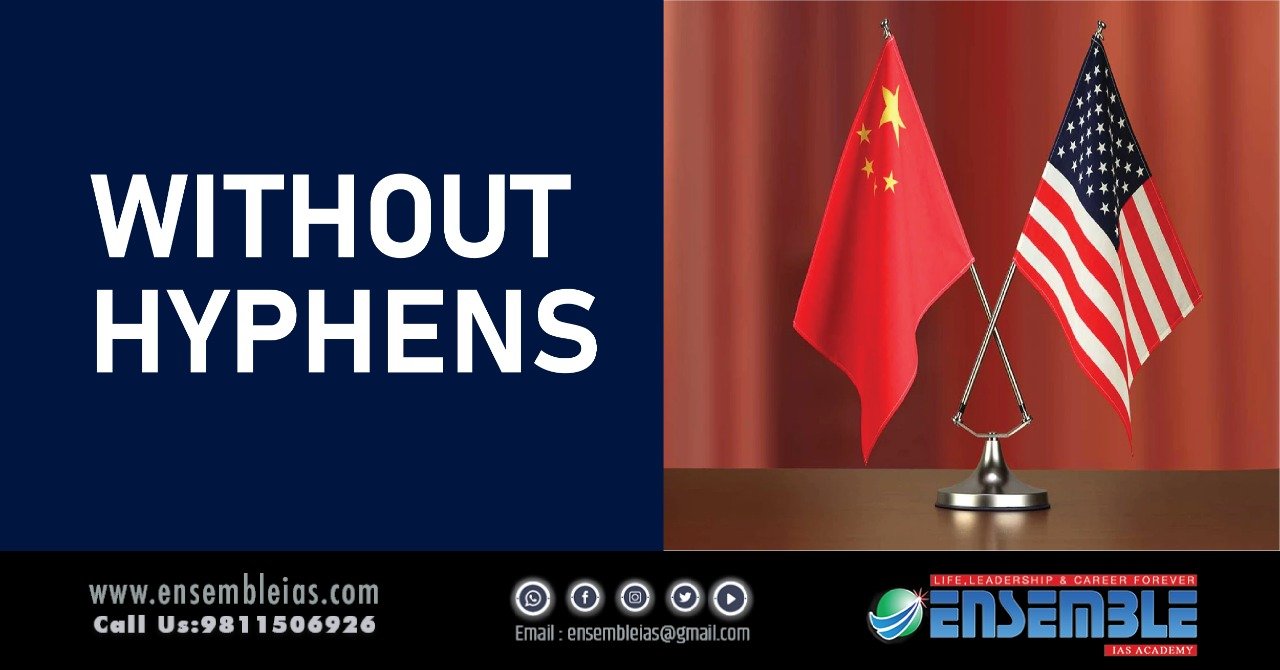Without hyphens: Jaishankar signals that Delhi won’t abandon difficult dialogue with China, nor is it panicking into military alliance with US.
To buy our online courses: Click Here
In his remarks at an event hosted by The Financial Times and The Indian Express late last week, the external affairs minister, Subrahmanyam Jaishankar, laid out India’s geopolitical calculus in a world that is being shaped by the two dominant powers — China and the United States. Jaishankar was frank in discussing Delhi’s problems and opportunities in relations with Beijing and Washington. Independent India’s foreign policy tradition sought to underplay the problems with China and highlight Delhi’s political distance from Washington. The default mode has evolved rapidly since last spring, when Beijing surprised Delhi by transgressing the Line of Actual Control in eastern Ladakh. Since then Delhi has maintained a sustained military political dialogue with Beijing calling for a restoration of the territorial status quo ante while countering Chinese military deployments on the ground. Delhi has also sought to raise the economic costs for China’s aggression by limiting economic and commercial cooperation with Beijing. Most recently, it has excluded Chinese companies from the Indian plans to roll out the Fifth Generation (5G) telecommunication networks.
On its part, China wants to separate the border crisis from the broader bilateral relationship. Jaishankar insists that there is no question of Delhi returning to business as usual in the bilateral relationship without Beijing taking specific steps on the border to rebuild India’s trust in China. If China seems to disregard India’s sentiments, Delhi is defiant and refuses to be bullied by Beijing. As India’s relations with China enter a prolonged stalemate, there has been a rapid advance in India’s relations with the United States. Last year saw the intensification of the India-US bilateral defence ties as well as greater openness in Delhi towards engaging with America’s Quadrilateral Security Framework involving Australia and Japan. If the last year of the Trump presidency saw the acceleration of the strategic partnership, President Joe Biden is giving it an additional momentum.
Without hyphens:
Officials in Delhi and Washington underline that the expansion of their relationship is not a function of the troubles in India-China relations. The trend lines have run in parallel in recent years and have come into sharp focus in recent months. The essence of Jaishankar’s message has to do with what he projects as India’s new self-assurance in handling China and the US. Until recently, in the name of non-alignment and strategic autonomy, Delhi tended to be too deferential to Beijing and rather defensive about the US partnership. Jaishankar is signalling that India is strong enough to set its own terms for the engagement with the two superpowers. India is not going to abandon the current difficult dialogue with China nor is it panicking into a military alliance with the US. Delhi is no longer willing to cede a veto to China over India’s ties with America. India wants a good neighbourly relationship with China while also realising the full potential of its partnership with the US, and more broadly, with the West.




